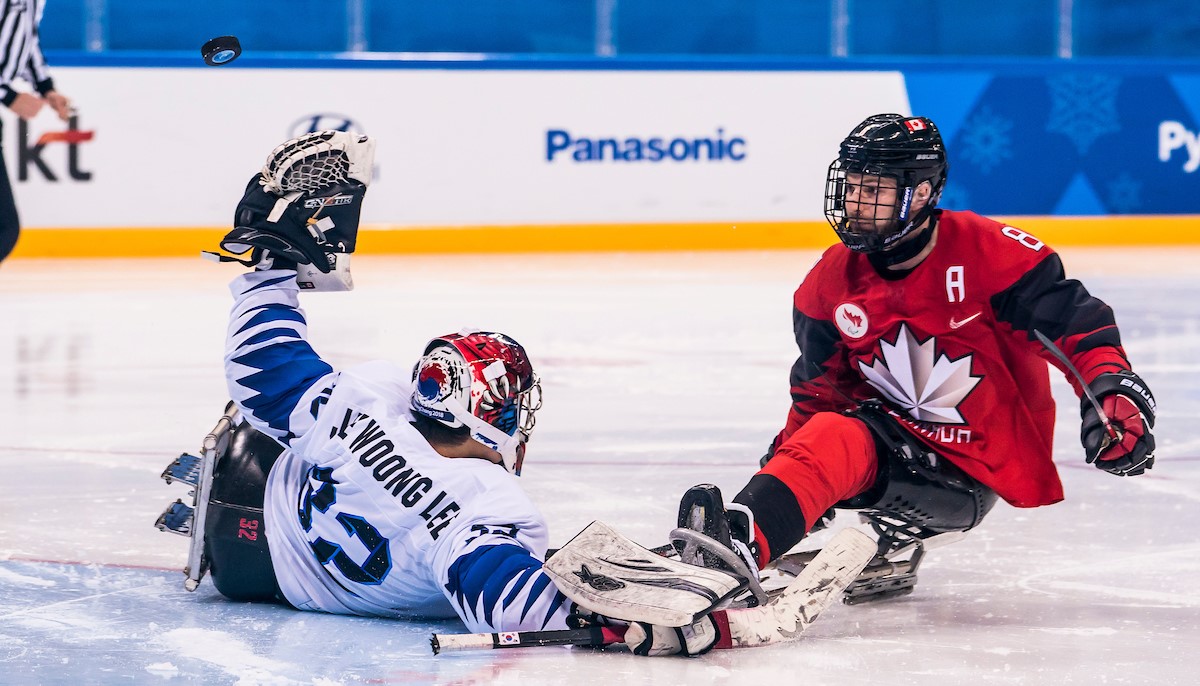All about Para ice hockey: Canada-USA rivalry one of best in Paralympic sport
Canada searching for first gold since 2006

Canada-USA appear to be on track for another epic battle for the gold medal in Para ice hockey at the 2022 Paralympic Winter Games in Beijing. The Americans have won the last three titles. Can the Canadians conquer for the first time since 2006?
Head into the upcoming Beijing Games as a Para ice hockey expert, as we bring you up to speed on the sport below:
Paralympic Origins
Para ice hockey was invented at a rehabilitation centre in Stockholm, Sweden, in the 1960s by a group of Swedes with disabilities who wanted to continue playing the sport. Fittingly, it was Sweden which won the first Paralympic title in the sport’s debut some three decades later at Lillehammer 1994.
The sport caught on and by 1969 Stockholm had a five-team league that included players with a physical impairment and able-bodied players. That same year, Stockholm hosted the first international Para ice hockey match between a local club team and one from Oslo, Norway.
Para ice hockey was a demonstration event at the inaugural Paralympic Winter Games in 1976 as a Swedish and Norwegian club faced each other. It was permanently added to the Games in 1994 and quickly rocketed to one of the most popular spectator events.
The USA, Canada and Norway have each won five medals in seven Paralympic Winter Games so far. The USA has four gold while Canada, Norway and Sweden have one each.
It should be noted that Para ice hockey was originally known as sledge hockey. In 2016, the International Paralympic Committee decided to rename and rebrand the sport under its jurisdiction, aligning it with how other Para sports are named. Since November 2016, sledge hockey has been officially known as Para ice hockey.
At the Paralympic Games, Para ice hockey is considered a mixed sport. Two female players have competed at a Winter Paralympics: Bri Mjaasund Oejen from Norway was the first at Lillehammer 1994. Lena Schroeder, also from Norway, took to the ice at PyeongChang 2018.
Sport Background
Para ice hockey is played by athletes with physical impairments in the lower part of their body. Players may have amputations affecting their legs, stiffness of the ankle or knee joint, or a leg length difference of at least 7cm. Some players also have muscle weakness in their legs, for example due to paraplegia.
The rules of the game are the same as able-bodied ice hockey, with some modifications. Instead of skates, players sit in double-blade sleds that allow the puck to pass beneath. They also use two sticks, which have a spike-end for pushing and a blade-end for shooting.
Canadian Landscape
The sport was introduced to Canada in 1980 and grew quickly, with the first national tournament held in 1983. As a result of rapid growth of the sport, Sledge Hockey of Canada (SHOC) was created in 1993 and given the title of a national sport federation to coordinate, develop and promote the sport of Para ice hockey in Canada.
In 2004, Para ice hockey came under the umbrella of Hockey Canada.
The sport made its Paralympic debut in 1994 and Canada has participated in every tournament, winning one gold (2006), two silver (1998, 2018), and two bronze (1994, 2014).
Many Canadian players on the current national team are living legends. This include forwards Billy Bridges and Greg Westlake, headed to a sixth and fifth Paralympic Games respectively in Beijing. They are Canada’s all-time points leaders.
Dominic Larocque, an Afghanistan veteran, transitioned from forward after the Sochi Games to become one of the best goalies in the world, and scoring sensation Tyler McGregor has been the national team captain since 2019. Adam Dixon, who has returned from retirement to join the 2022 team, was Canada’s leading scoring at the 2014 Games.
When Canada won gold in 2006, Bridges was the tournament’s leading scorer and tournament’s top forward with 18 points in five games, including 11 goals while Brad Bowen was third with 13 points. Goaltender Paul Rosen was a standout in net with a 0.92 GAA.
Westlake was the top scorer at the Vancouver Games in 2010 when Canada was upset 2-1 by Norway in the bronze medal game. Westlake was named the top forward and Bowden the tournament MVP.
"*" indicates required fields
"*" indicates required fields